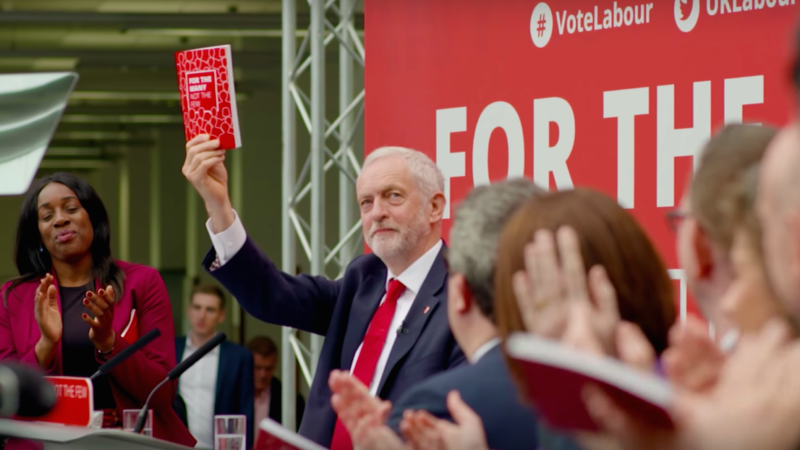
Labour will soon meet to agree on the policies that go into the 2019 general election manifesto. The meeting that signs off the manifesto is called the ‘Clause V’ meeting, taking its name from Clause V of the Labour Party rulebook. So, what exactly is the Clause V meeting – and how does it work?
The leader of the Labour Party chairs the Clause V meeting, which is attended by the national executive committee (NEC), relevant shadow cabinet members and senior trade union representatives. All NEC members are able to attend (unless they are suspended).
Labour conference votes on motions that set the agenda and priorities for policy discussions for the year. The national policy forum (NPF) discusses these policies ahead of the manifesto writing process. In a normal election cycle, this takes place over a number of years. If there is a snap election, the process is sped up and simplified.
The upcoming November meeting will be the third Clause V meeting I have attended in my five years on the NEC. It will probably be more like the 2017 snap election meeting than the one held in 2015.
An NPF meeting took place in Milton Keynes to prepare for the 2015 general election manifesto. Lively policy debates took place about what should go into the manifesto (although I smile to myself looking back at some of the issues that were considered controversial at the time). Other potentially contentious issues were resolved behind the scenes. Party unity is extremely important ahead of elections, which means key policies are likely to be decided well ahead of the Clause V meeting. In 2015, the meeting took a more confirmatory role, rather than being a place for debate.
Drafts of the manifesto were leaked ahead of the 2017 Clause V meeting. Looking back, this led to a sense of drama, anticipation and excitement around the manifesto. Ironically, it probably meant that many more people had read a draft of the 2017 manifesto than had read the published 2015 one, and the policies proved popular with the public. The draft that was handed out in the 2017 Clause V meeting was slightly amended and because of the short timeframe for the policy-making process, there was some good natured, healthy policy debate. There were also opportunities to add policies. For example, Ann Black and I asked for international students to be taken out of the official immigration figures.
It was important, however, that the manifesto didn’t read like it was drafted by a committee and had a compelling, overarching narrative about what Labour stands for and what a Labour government will deliver. Andrew Fisher and his team filtered suggestions to prevent the manifesto from becoming a clunky policy wish list.
Jeremy has told the NEC that the 2019 manifesto will build on the 2017 manifesto. I expect it will also incorporate some of the policies prioritised by this year’s Labour Party conference. Key discussions will take place behind the scenes ahead of the meeting to avoid any damaging confrontations, although I expect some healthy, friendly debate.
I won’t see a draft of the manifesto until the meeting itself, when attendees are handed numbered copies. We return these copies when the meeting ends. We also hand our electronic devices over before we enter the room to ensure that there are no leaks.
Important documents like the manifesto are often formally agreed by a vote at the end of the meeting on the whole document, rather than going through each policy line by line. Despite inevitable areas of policy disagreements, I would not expect the meeting to vote against the manifesto or force the leader to adopt policies against their will. For example, some members have been lobbying the NEC to adopt an explicitly pro-Remain policy, but it would be extremely unconventional and unlikely for the meeting to force the party leader to adopt a policy that contradicts official party policy.
The NEC often disagrees, sometimes passionately, about governance and process but – Brexit aside – there is generally consensus around policy. There is so much at stake at this election. I expect our next manifesto will contain inspirational policies that make clear what Labour stands for and show the important difference that voting Labour makes.




More from LabourList
SPONSORED: ‘Industrial hemp and the challenge of turning Labour’s priorities into practice’
‘A day is a long time in politics, so we need ‘action this day’’
Strong support for child social media ban among Labour members, poll reveals